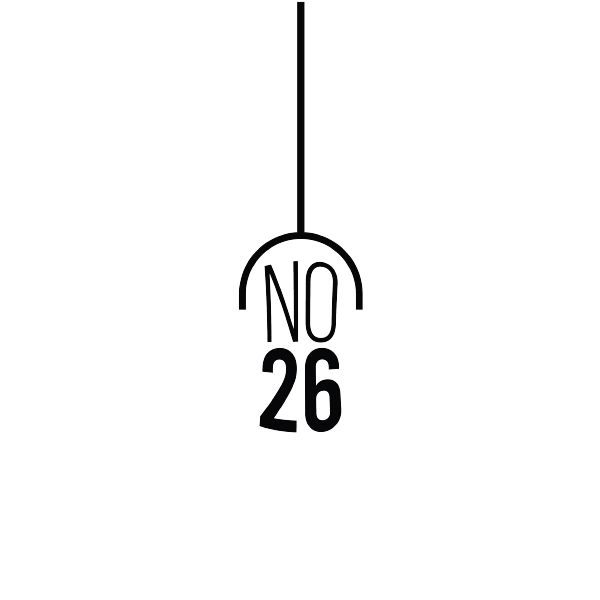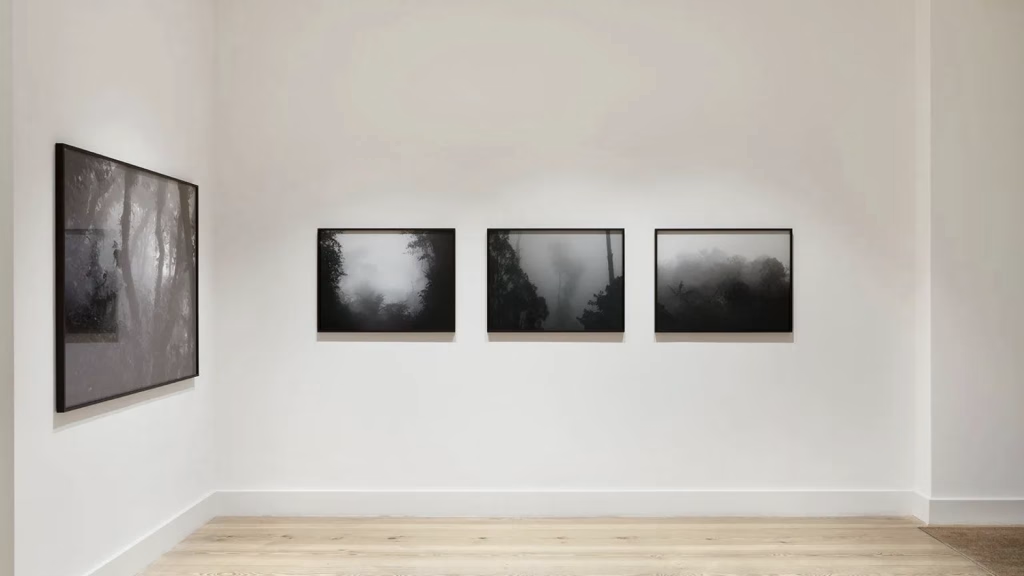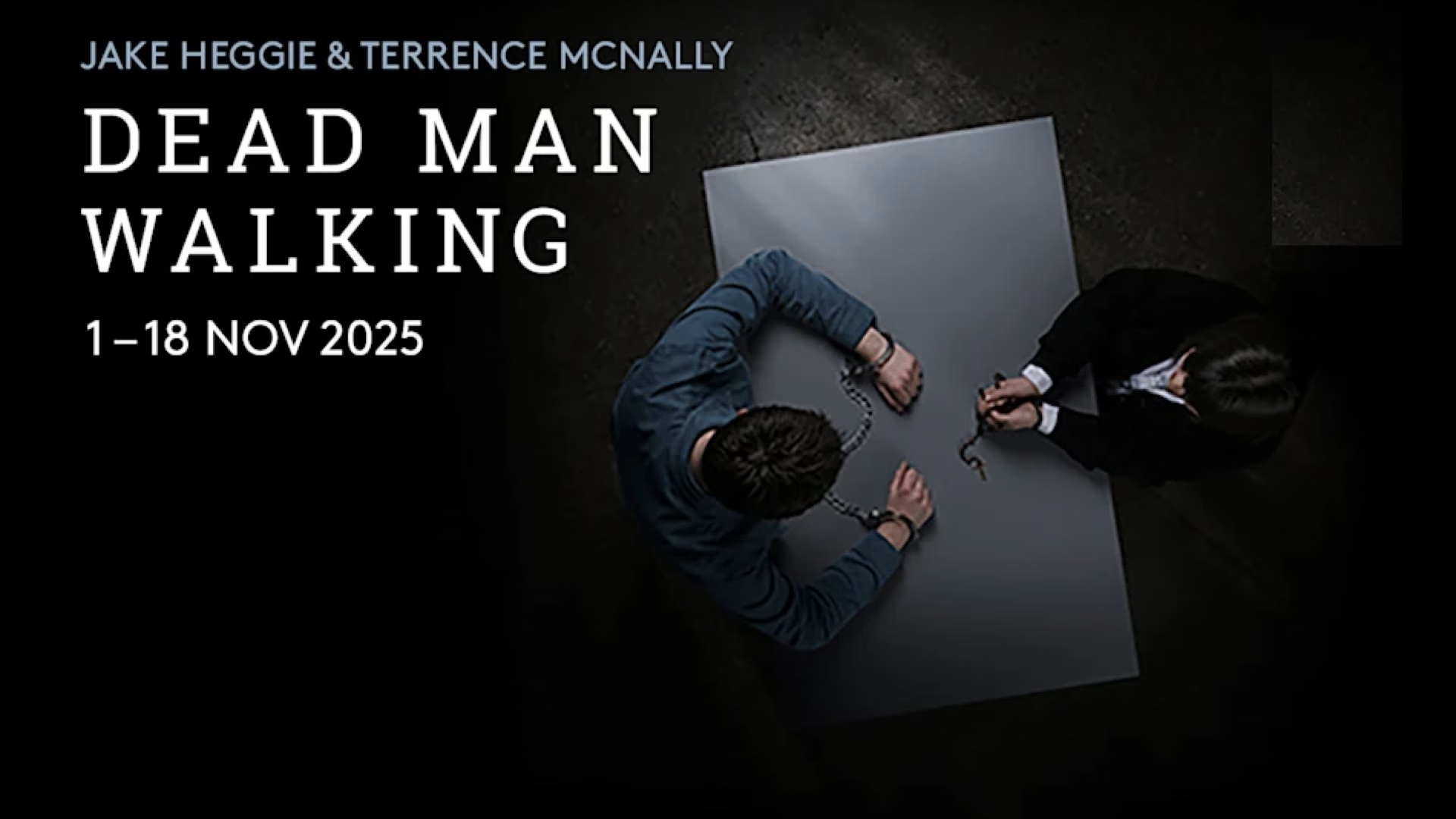The Louvre Heist Prophecy: The Codes Hidden in William Blake’s Art
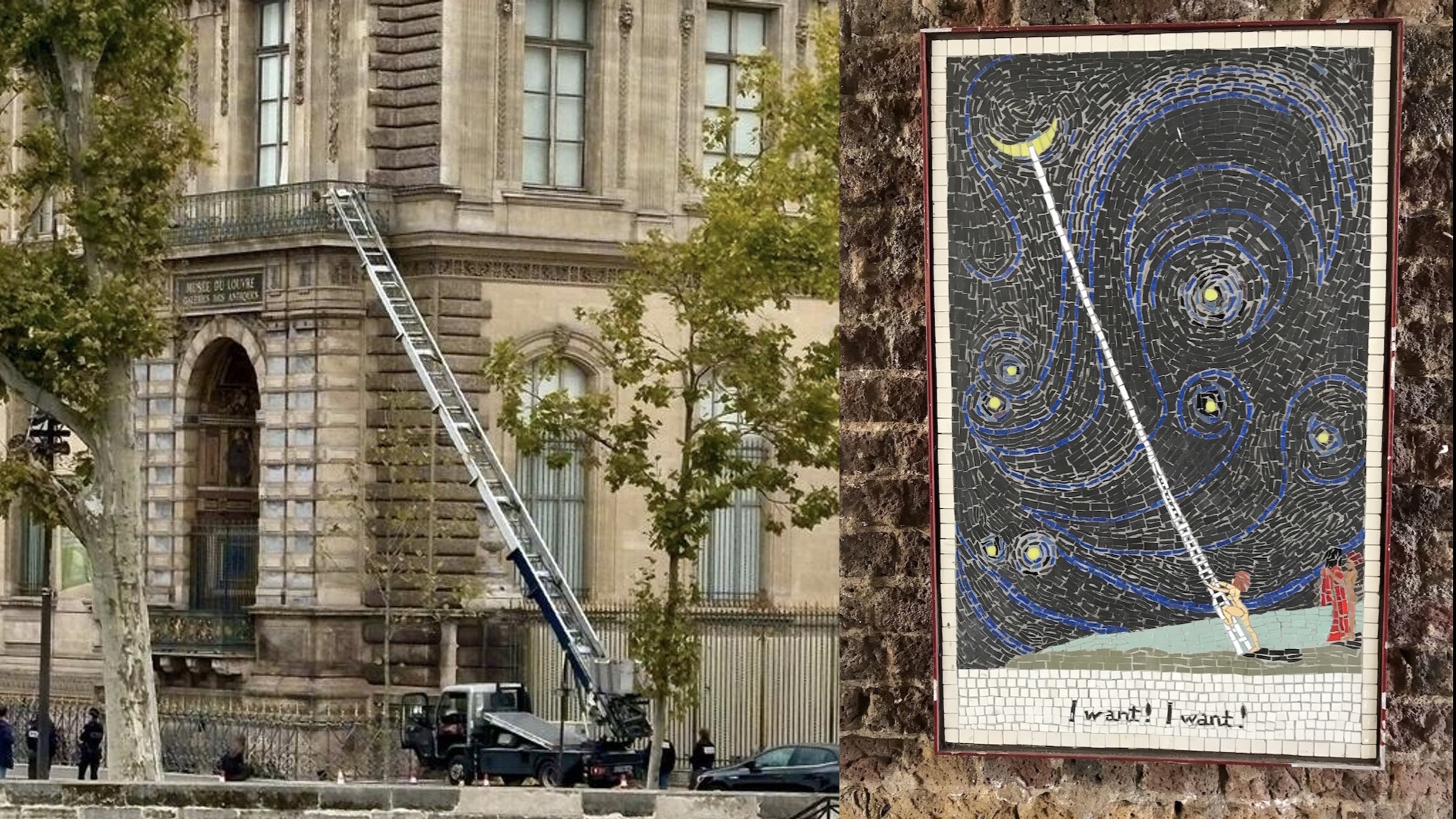
Art sometimes whispers the future—from 232 years ago. When art lovers heard the news of thieves entering the Louvre Museum via a long ladder, it’s no surprise that English poet and painter William Blake immediately sprang to mind for some. The author turns this incident into a humorous conspiracy theory through astonishing coincidences in Blake’s works.
Blake’s 1793 illustration “I want! I want!” serves as the starting point for the theory. The ladder in the work rises toward the moon. The Louvre thieves, meanwhile, used their ladders to reach the Apollo Gallery. Though named after the Sun God Apollo, the gallery is closely tied to the moon-landing-evoking name Apollo.
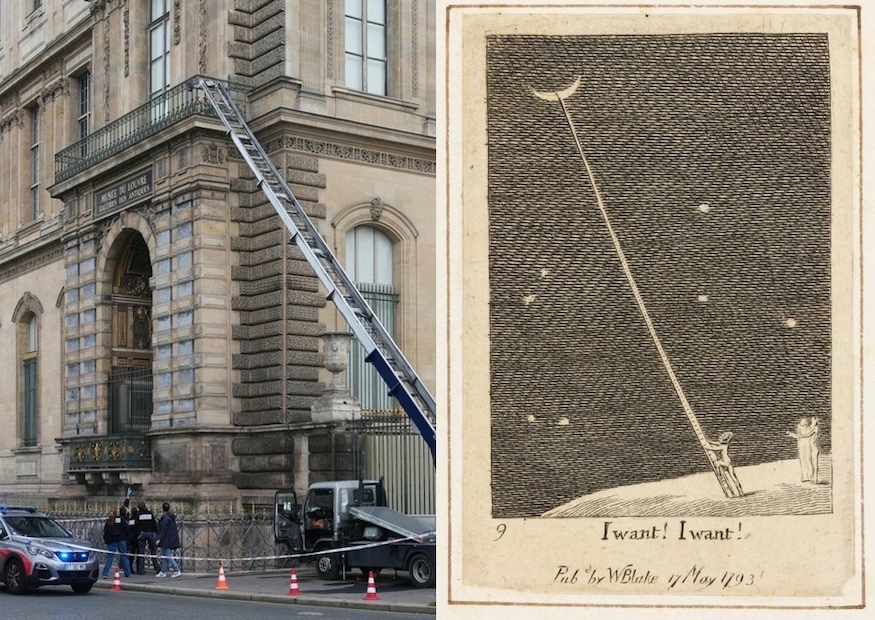
Seven Stars and Eight Jewels The connections deepen: in Blake’s drawing, the sky contains exactly seven stars if the moon itself is counted as the eighth jewel. The Louvre robbers managed to escape with eight valuable jewels from the museum.
Even the detail of the thieves dropping Empress Eugénie’s crown while fleeing finds an echo in Blake’s art. The author points to Blake’s 1803 watercolor “The Four and Twenty Elders Casting their Crowns before the Divine Throne,” noting it as the greatest artwork dedicated to the casting down of crowns.
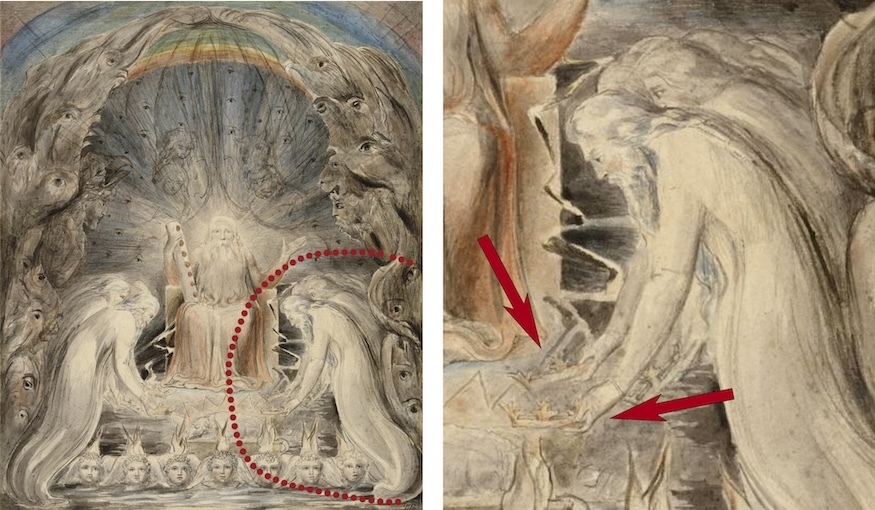
Blake’s visionary imagery may even have foreseen the Louvre’s magnificent pyramid: his famous 1794 painting “Ancient of Days” depicts a scene with a veiled-faced figure appearing to descend upon the Louvre.
Of course, all these connections are nothing more than amusing coincidences. Yet Blake’s art has always dealt with violence and punishment. If you were French police, you’d search for the thieves in a snake pit, just as in Blake’s “The Punishment of the Thieves,” on display at Tate.
This conspiracy theory demonstrates how Blake’s art and symbolism can seep into the most unexpected events of reality.
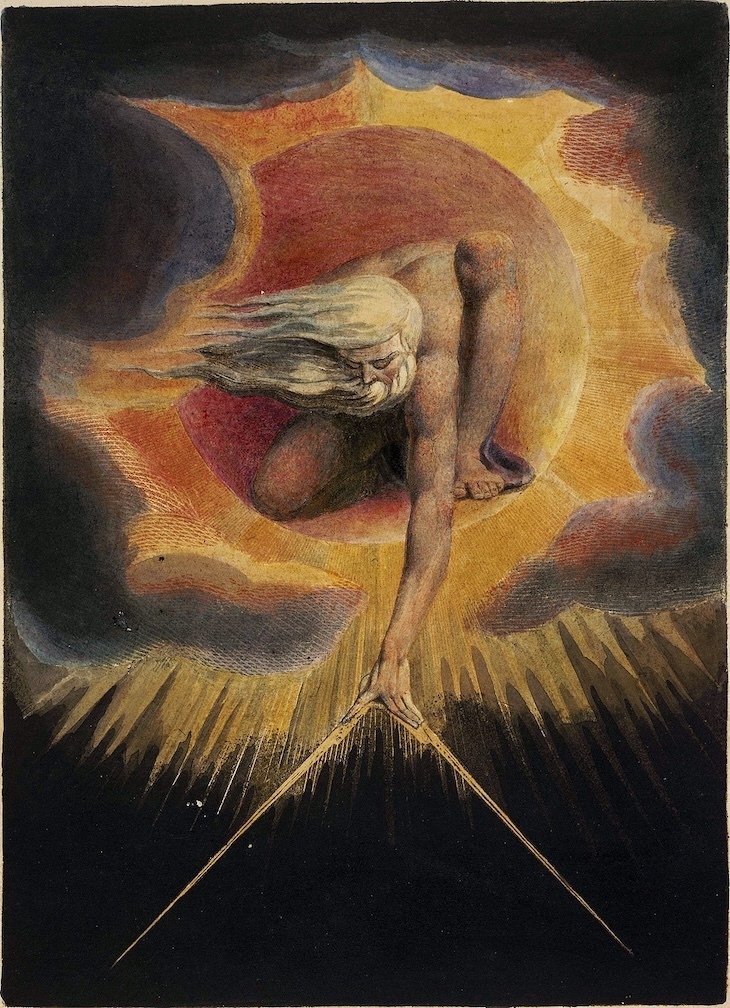
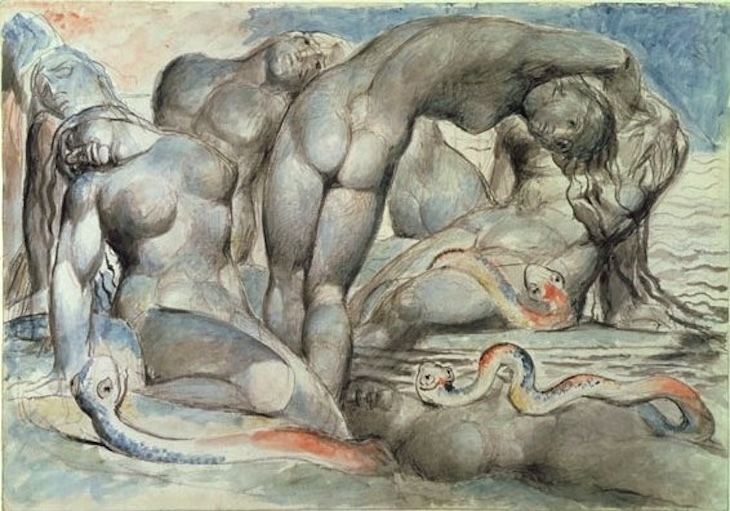
Artist Note:
William Blake: English Romantic poet, painter, and printmaker. Known for his visionary imagery and unique mythology.
Louvre Heist: It is currently unknown whether the thieves in question have been caught.
